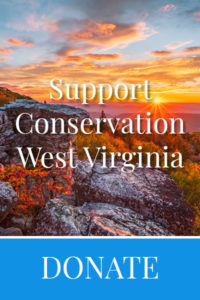West Virginians should be able to choose who they buy electricity from. And be compensated for selling energy to the grid.
Solar at Home
When you think about it, coal and natural gas are just ancient, organic storage devices for sunlight. If we want to use the energy from that ancient sunlight, we burn the coal or gas, which releases carbon pollution.
Wouldn’t it be great to use the sun’s energy without carbon pollution? That’s what modern solar energy does. Large solar facilities are being built everywhere. But solar technology can also be put on your roof or garage. When we generate our own solar at home, it cuts our electric bills while it cuts carbon pollution. Solar is really power to the people.
People who live in apartments or houses in the woods could also have solar. Many states allow community solar facilities, where people buy a share of clean power generated and get credit on their electric bills. But West Virginians can’t. Why? Big power companies have a monopoly in West Virginia, and they don’t want community or residential solar. Politicians listen to them.
Electric Vehicles
We don’t want to be told what we can drive. But that’s what politicians in Charleston are doing. Hybrid and electric vehicles are taxed higher than gasoline and diesel vehicles. And our EV infrastructure is lagging behind other states, despite getting $45 million from Congress. Unlike other states, our state offers no tax credit to buy an EV.
Carbon pollution comes out of tailpipes just like smokestacks. EVs solve this problem — they have no tailpipe emissions. That’s zero carbon pollution. And EVs are cheap to operate, costing roughly 2.5 cents per mile and needing virtually no drivetrain maintenance. Appalachian Power has estimated the annual cost to drive a full-size vehicle 12,000 miles per year; they say it’s 2.5 times cheaper to drive an EV.
Nobody is saying we can’t drive gas-guzzlers if we want to. But somebody is saying we can’t drive EVs when we want them. West Virginia state policy should support the adoption of electric vehicles. Give us the choice and we will make it.
Net Metering
Net metering enables households and businesses to generate their own electricity through solar, then feed their excess power back into the local electric grid. In West Virginia, consumers are compensated for the energy they send to the grid at a fair market rate. If you make more energy than you use, you get a credit (equal in value) on your next month’s electric bill. This help consumers save money.
Power companies don’t like having to pay people for the electricity they feed into the grid. They want to get something for nothing, then sell it to other consumers at a profit. The issue comes up every year in the legislature. Enough corporate giveaways! We need elected leaders to stand up for West Virginia, and keep the net metering credit at 100 percent!
Wind
Wind energy represents the second largest source of power in the West Virginia electric grid. Even though wind isn’t always present, turbines can still actively generate energy 90 percent of the time.
While coal jobs in West Virginia continue to decline due to market forces, jobs in wind and solar continue to rise. By 2030, wind energy is expected to bring over 1,000 full-time jobs to the state.
In 2009, West Virginia had passed an alternative and renewable energy portfolio standard that required investor-owned electric utilities and retail suppliers with more than 30,000 customers to acquire 25% of their retail electricity sales from eligible alternative and renewable energy resources by 2025. Sadly, in 2015, West Virginia became the first state to repeal its renewable portfolio standard. The legislature threw out standards that were working for WV ratepayers.

